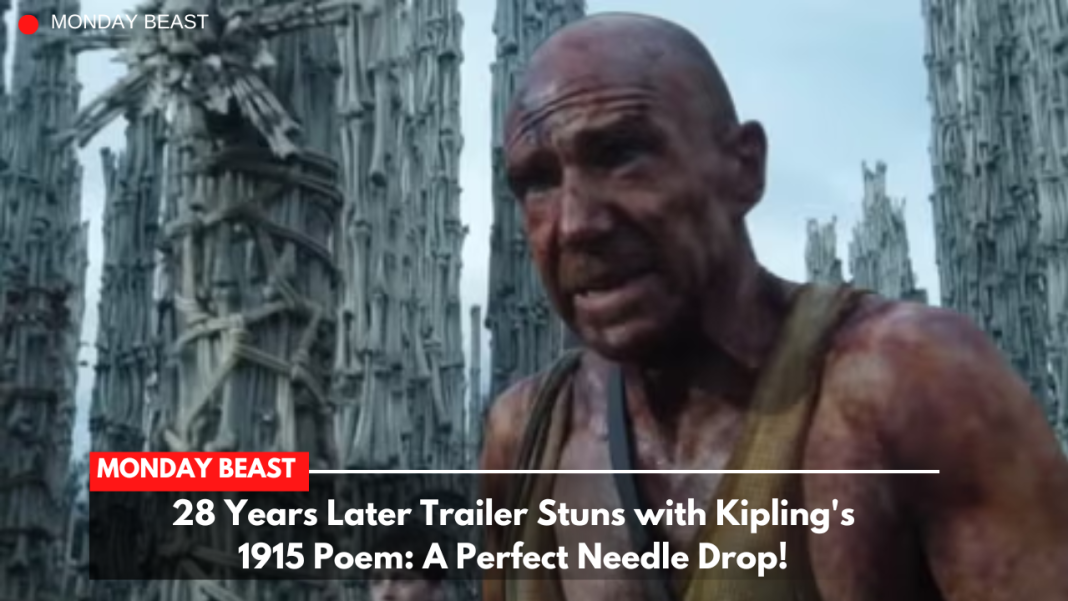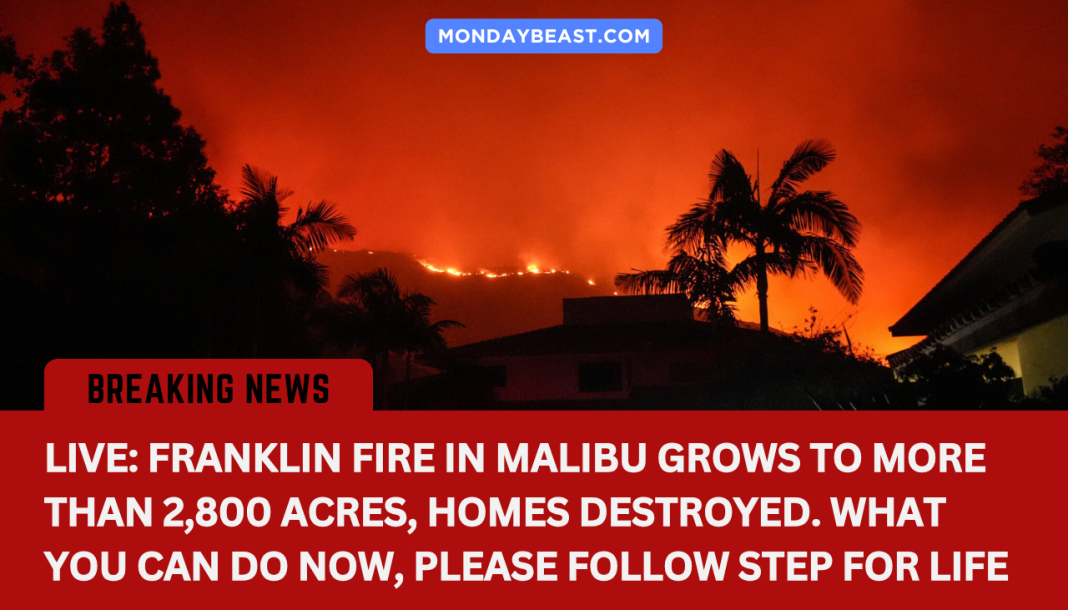When trailers drop, they often dictate how we feel about a film. So when 28 Years Later’s trailer emerged, it sparked more than just curiosity. It raised questions. Would this sequel capture the haunting essence of its predecessors? Or would it become another forgettable film? Surprisingly, it might have just changed the game.
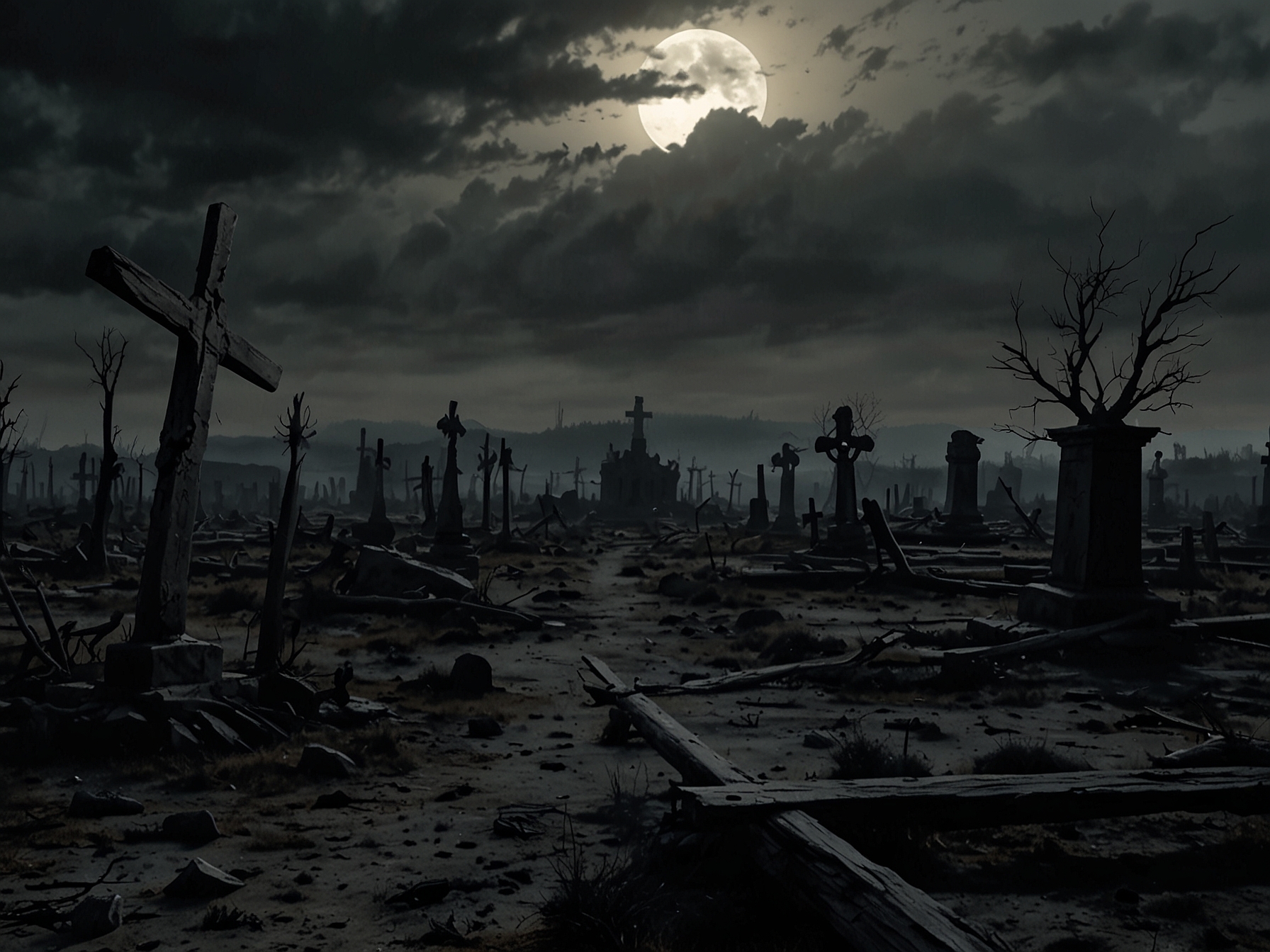
The very first note you hear in the trailer isn’t what you’d expect. Rather than the standard pop anthem, it begins with a nostalgic nod to the past—incidental music from the Teletubbies. What an eerie twist! From there, the mood shifts dramatically. The unsettling vinyl hiss creeps in, heralding the spoken words of Rudyard Kipling’s poem, “Boots.” It seems almost surreal—who would pair a classic poem with zombies?
Yet that choice pulls viewers in. The voice of Taylor Holmes echoes hauntingly through the trailer. His rendition sends chills down your spine. As he chants, “There’s no discharge in the war,” it gets under your skin. You begin to feel the weight of desperation, the darkness of conflict. It screams of hopelessness and endless struggle.
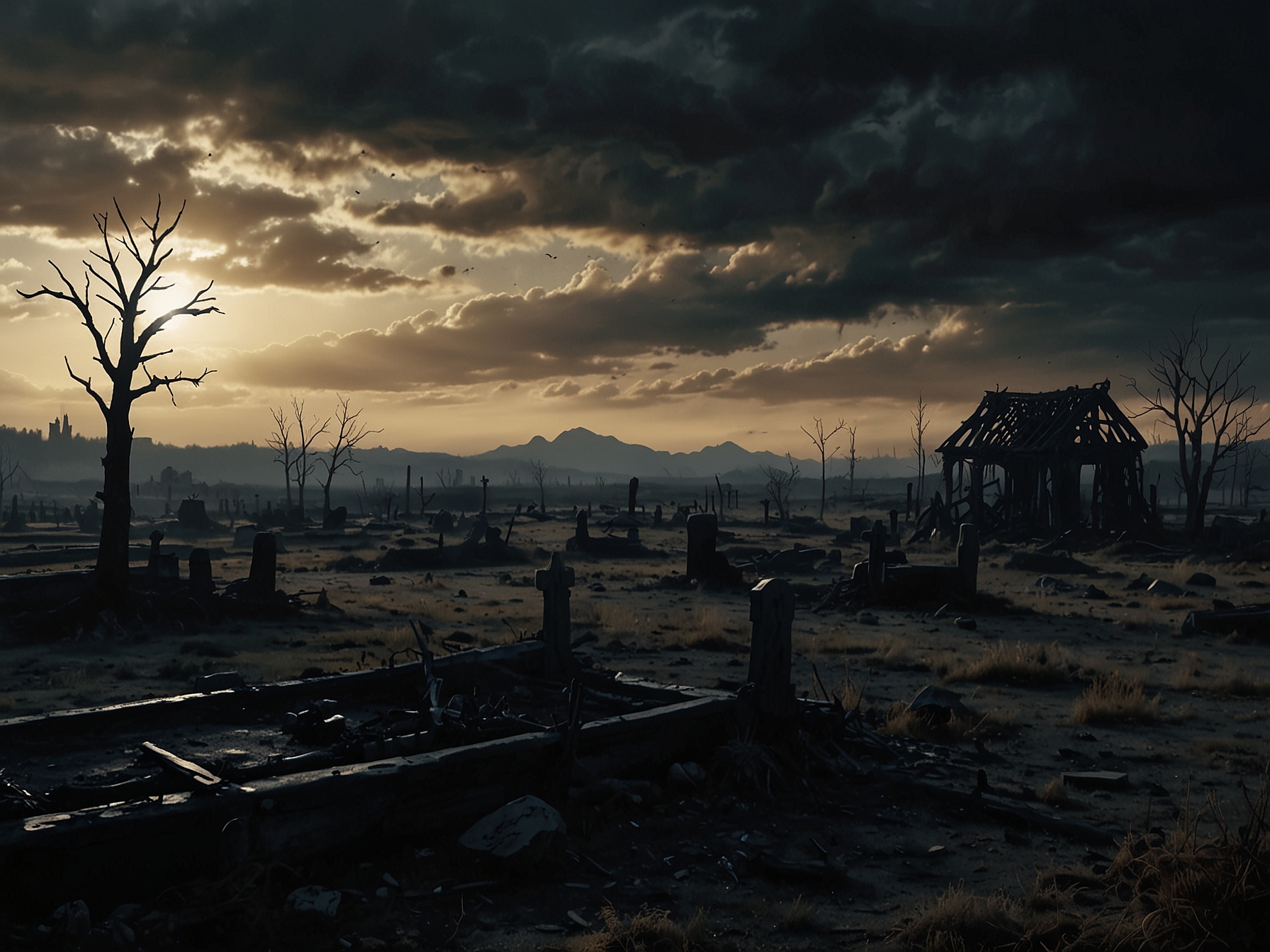
But let’s be real, this isn’t just any poem. Kipling’s words evoke an antiquated sense of duty. The pulse of marching soldiers against a backdrop of chaos is deeply unsettling. In a movie about a post-apocalyptic world, it’s both a match made in heaven and a disturbing reminder of humanity’s ongoing battles. Who knew a century-old piece could resonate so powerfully?
Now, some may wonder if this method could pave the way for other films. Will we see more horror trailers leaning on similar nostalgic themes? I’d say there’s potential. Imagine other classic recordings paired with modern horror visuals. Why not bring the eerie sounds of old-time radio shows into contemporary cinema? It’s a genius blend of old and new that evokes strong emotional responses.
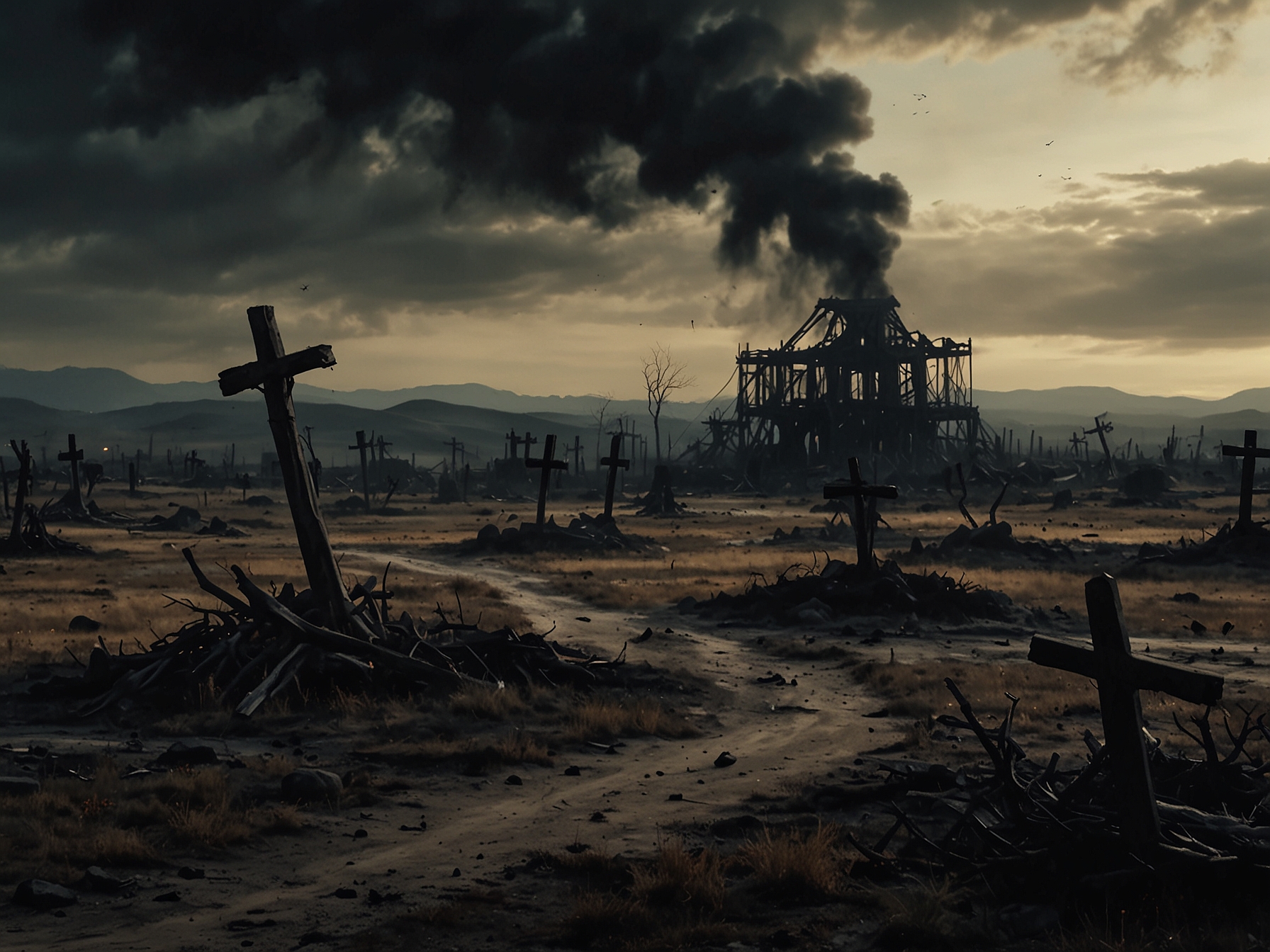
Visually, the trailer offers a feast for the eyes. Shot on an iPhone, it presents a gritty and raw aesthetic. Images of burning graves and skeletal towers stir the imagination. They signify loss in ways that words alone can’t capture. It’s a blend of folk horror and modern fear that feels alive.
Aaron Taylor-Johnson, moving skillfully through this world, adds to the intrigue. He’s armed with a bow and arrow, suggesting a return to primal survival instincts in the face of unimaginable horror. This isn’t just another zombie flick; it’s a raw survival story with elements that push it beyond mere entertainment.
Yet what if the film does falter? Would the trailer’s impact change? Would the haunting nature of those poetic words linger in our minds even if the film disappoints? Perhaps. But I believe that even a lackluster movie can’t take away the brilliance of this trailer.
In a world where trailers often feel predictable, 28 Years Later has broken free from the mold. With its bold, creative choices, it opens doors to new emotional landscapes. Might we see more trailers diving into the depths of human experience through poetry? That remains to be seen, but one thing is clear: Taylor Holmes’ chilling rendition of “Boots” will haunt us well beyond the screen.

